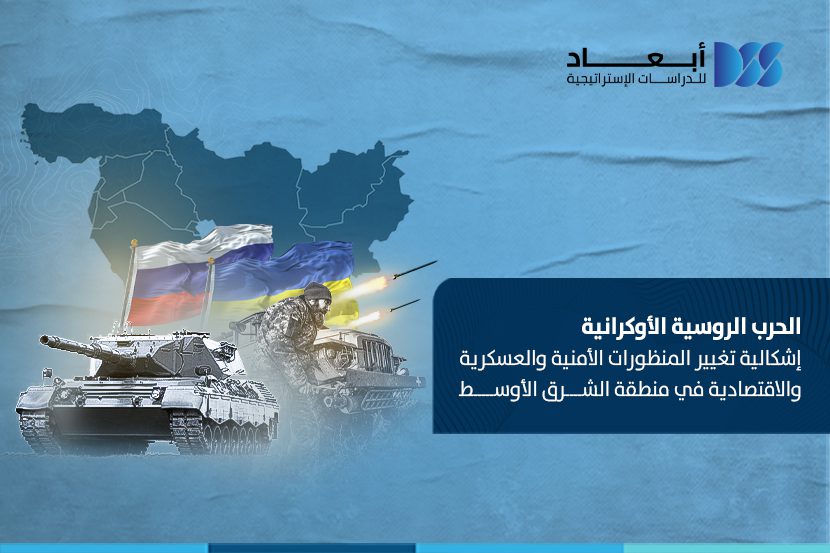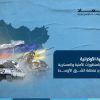The Russian-Ukrainian war has internationalized the repercussions of the crisis, extending to geographical areas far beyond the European continent, where the war between Russia, Ukraine, and the West is raging. The war continues to have complex repercussions in many regions of the world, as the medium- and long-term geopolitical, security, military, and economic impacts have become a reality that can be observed in all regions, especially developing countries.
In the shadow of this war, which has been going on for nearly two years, and following the global health crisis of the Coronavirus, the Middle East has witnessed fundamental and rapid transformations at the level of security structures and political alliances, and changes in the performance of the security system that has been adopted since the beginning of the twentieth century and is based on American and British tutelage. There has also been a beginning of thinking about adopting sovereign policies with greater independence from the influential countries in the region, and the main countries in the region have attempted to adapt their own capabilities to the changing international landscape, with an approach to diversifying regional and international partners.
The relative US withdrawal from the Middle East—despite the current US administration’s unwillingness to withdraw from Iraq, for example, as a means of pressure on Iran, and its link to developments in the ongoing talks in Vienna to revive the Joint Comprehensive Plan of Action (JCPOA)—and the decline of the US role, particularly in finding solutions to the Syrian, Yemeni, and Libyan crises, have pushed the countries of the Middle East and North Africa to find a way to adapt to the current security balance by defending their borders and sovereignty and filling the vacuum created by the decline of US tutelage.
Countries in the Middle East are trying to focus on building security and military guarantees based on a vision of a multipolar world by merging with new alliances and partnering with other international players, such as China and Russia, who have recently entered the Arab region. In doing so, the countries of the region aim to diversify their partners by replacing the role of the US as the region’s primary protector, bound by security agreements with many countries, such as the Gulf states, under which numerous US military bases were established in the region to mobilize all Arab and Gulf capabilities to confront Iranian aggression.
The paper aims to analyze the impact and repercussions of the Russian-Ukrainian war on the Middle East region, including answering the hypothesis of the region benefiting from an emerging multipolar world based on the changing balance of international and regional powers. This analysis addresses the main and secondary variables that contribute to changing the policies of the most important countries in the region based on new principles and arguments that relatively end the state of confrontation between the parties of the regional system and rely on qualitative partnerships that benefit all parties.



